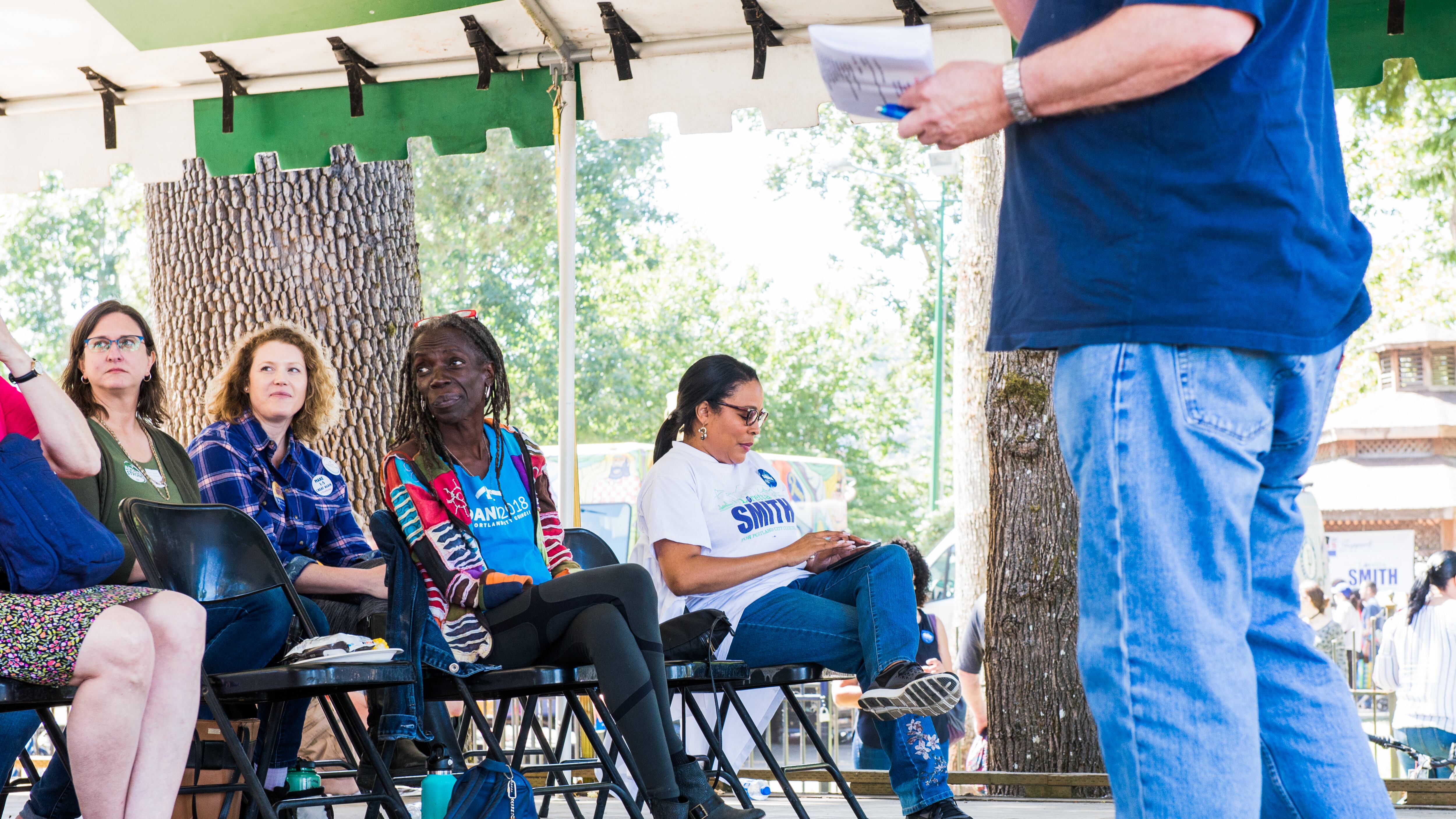This November, Portland will see a black woman elected to the City Council for the first time. Jo Ann Hardesty has the inside shot at making history—she led Multnomah County Commissioner Loretta Smith by 25 percentage points in the May primary.
But Smith has a significant advantage among one group of endorsers: black elected officials from across the state. State Sens. Lew Frederick (D-Portland), Jackie Winters (R-Salem) and James Manning (D-Eugene) have endorsed Smith; so have former Sens. Margaret Carter and Avel Gordly (both D-Portland), two of the first black women to serve in the state Capitol.
Smith's campaign says that's evidence voters should give her the nod—and have second thoughts about Hardesty, the former president of the NAACP of Portland, where recent news reports have found management and bookkeeping problems during her tenure.
"When the former president [of a black community organization] does not garner the same level of support from the community she's supposed to be serving, that speaks volumes," says Elizabeth Mazzara Myers, Smith's campaign manager.
So why is Smith racking up these endorsements? The answer: Smith has professionally cultivated these relationships for a generation.
"She has proven leadership," says Carter. "When the community speaks, she listens. She was able to speak with the community with confidence about what was needed."
Smith started her political career 30 years ago as a staffer for U.S. Sen. Ron Wyden, and grasped an essential lesson: If you want happy constituents, deliver results back home.
On the county commission for the past eight years, she's been in a position to help community groups in her North and Northeast Portland district, often with internships and grants.
"Loretta is already proven," says Tony Hopson, founder of the nonprofit Self Enhancement Inc. "[Hardesty's] time and energy have been largely on police accountability and have been very strong, and we all support that." But on jobs, education and housing, Hopson says Smith excels: "Loretta has spent more time and has delivered."
Hardesty, meanwhile, has centered her political work on causes like police accountability that resonate with Portland progressives. That's how she jumped out to a lead in the primary, and how she plans on keeping it.
Hardesty campaign manager Anna Nguyen says she has support across the political spectrum.
"People who disagree with her politically still find her respectable," says Nguyen. Hardesty declined a request for comment.

Why Is an Anti-Abortion Measure on the Ballot in America's Most Pro-Choice State?
Why is Phil Knight backing both Colin Kaepernick and Knute Buehler?
Why was it so easy for Republicans to crowd the ballot with measures?
Supporters of Measure 104 say it's about fiscal discipline, but what's the real issue?
Measure 103 will ban grocery taxes. What else will it do?
Why does housing in the ''Burbs depend on Portland voters?
Who is not on the ballot but has the most at stake this November?
Don't utilities already do the things the Portland Clean Energy Measure proposes to do?

